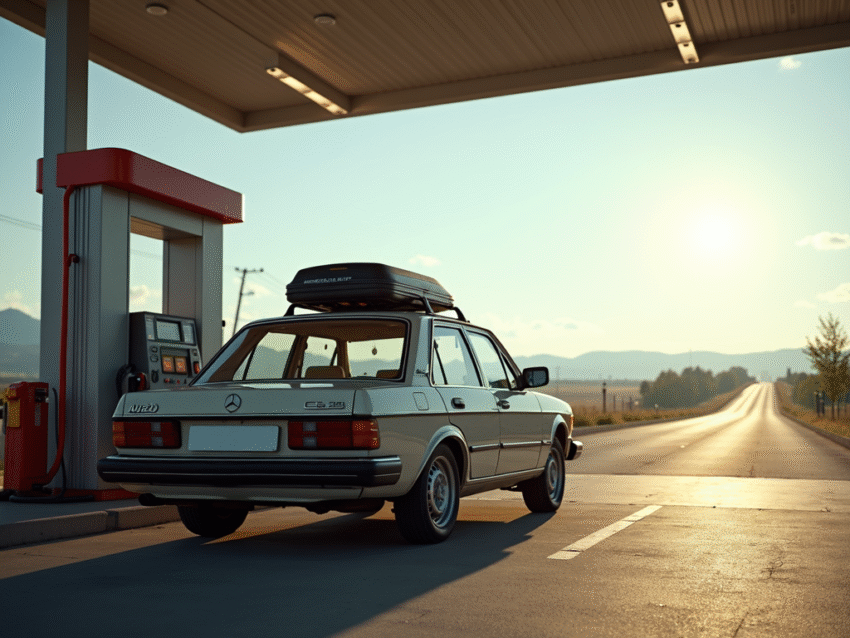Buying a car isn’t always easy—especially if you’re trying to save money and still get something reliable. One option that often comes up is diesel. People say diesel cars are better for long trips, but there’s also a lot of talk about how diesel is becoming outdated. So, is buying a used diesel car still a smart choice, especially if you drive long distances?
Here’s what I found out after learning more about it.
Why Diesel Cars Are Known for Long-Range Driving
Diesel engines are built to handle longer distances more efficiently than petrol engines. That’s mostly because of how they work. They burn fuel differently, which helps them use less of it. So, if you’re on the motorway a lot, a diesel car might mean fewer fuel stops and less money spent on fuel over time.
They also usually produce more torque, which just means they have better pulling power. That makes them feel stronger when going uphill or carrying passengers or gear. If you’re driving a lot every week, that kind of strength and fuel efficiency can make a real difference.
What Makes a Used Diesel Car Worth Considering
New diesel cars can be expensive, but used ones are often much more affordable. And since diesel engines are known to last longer when taken care of, a well-maintained used one can still have plenty of life left.
Of course, it’s important to buy from a dealer you can trust. It’s a good idea to look for Used Diesel Cars online, where there’s a decent variety of options already inspected and ready to go. That makes things easier, especially if you’re not sure what to look for in an engine.
Things to Think About Before Buying
Even though diesel cars have some advantages, they aren’t for everyone. If you only drive short distances or spend most of your time in town, diesel might not be the best fit. That’s because diesel engines take longer to warm up. If you’re just doing short trips, the engine might not stay hot enough to work properly, which can cause problems later.
You also need to think about the age of the car and how well it’s been looked after. Older diesel cars built before recent emissions rules might not be allowed in low-emission zones in some cities. That’s something worth checking before buying.
Diesel Costs More at First, But Less Over Time
Diesel fuel is often a bit more expensive than petrol. Diesel cars can also cost more to fix if something goes wrong. But if you drive a lot, the fuel savings usually make up for it. In most cases, diesel cars give better mileage, so they go farther on each tank.
That’s why people who drive for work, like delivery drivers or commuters with long journeys, still choose diesel cars. The cost per mile tends to be lower when you look at the full picture.
What About the Environment?
A lot of people are switching to electric or hybrid cars because they produce fewer emissions. That’s a good thing overall. But not everyone can afford a new electric car—or charge one easily. For someone who drives long distances and needs to stay on a budget, a diesel car might still be the most realistic option.
Modern diesel engines are cleaner than older ones. Some used models have features like diesel particulate filters, which help cut down on harmful emissions. Again, this depends on the age and model of the car, so it’s good to check the specs before buying.
When Diesel Makes Sense (And When It Doesn’t)
If you’re mostly driving on motorways or doing long trips several times a week, a diesel car might be the best option. It gives you better fuel economy, strong performance, and good durability over time.
But if you’re only using the car for short drives, running errands, or school drop-offs, diesel might not be the best fit. In that case, a small petrol or hybrid car could be better.
It really depends on how much and how far you drive. The more miles you put in each week, the more likely diesel will save you money and work better in the long run.
Final Thoughts
Used diesel cars can still be a smart choice, especially for people who drive long distances and need something dependable. They’re fuel-efficient, strong, and usually hold up well over time. But they’re not for everyone. If most of your driving is short or local, diesel might not be the right fit.
What matters most is understanding how you’ll use the car and choosing something that fits your needs—not just what’s popular. Taking the time to look at how far you drive, what kind of trips you do, and how much you want to spend can help you make a better choice.


